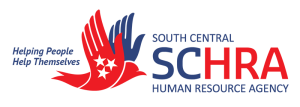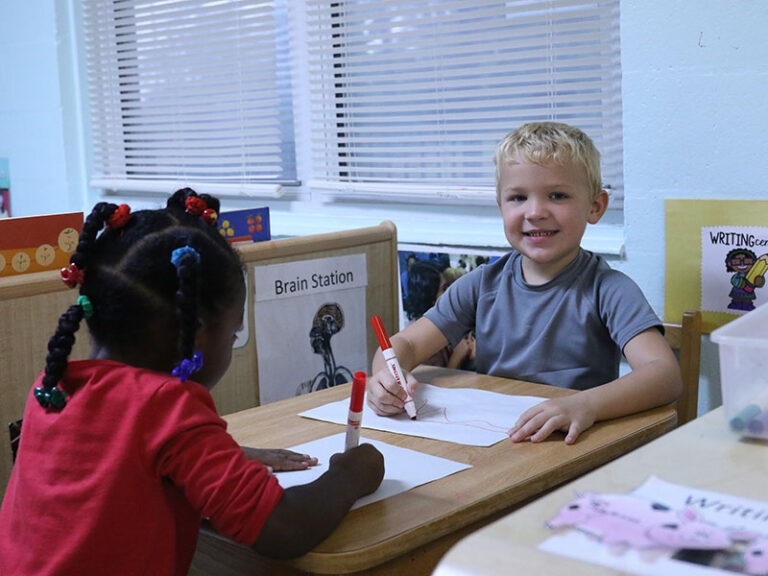
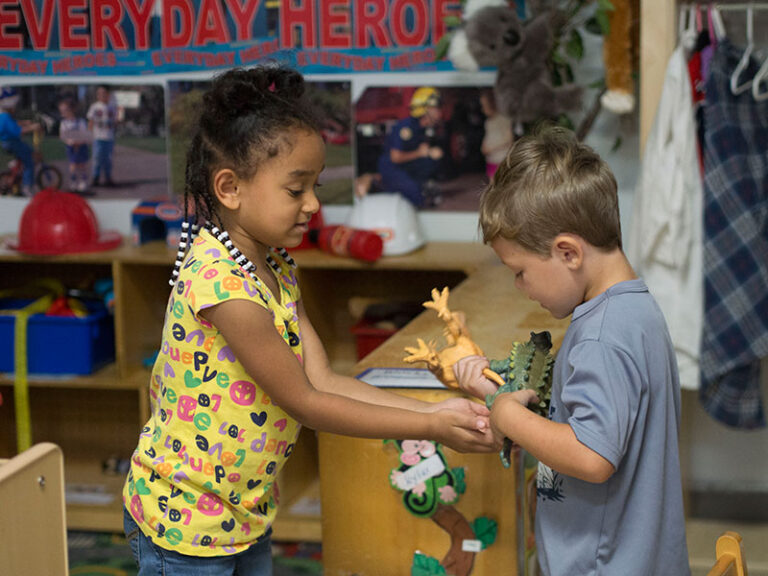
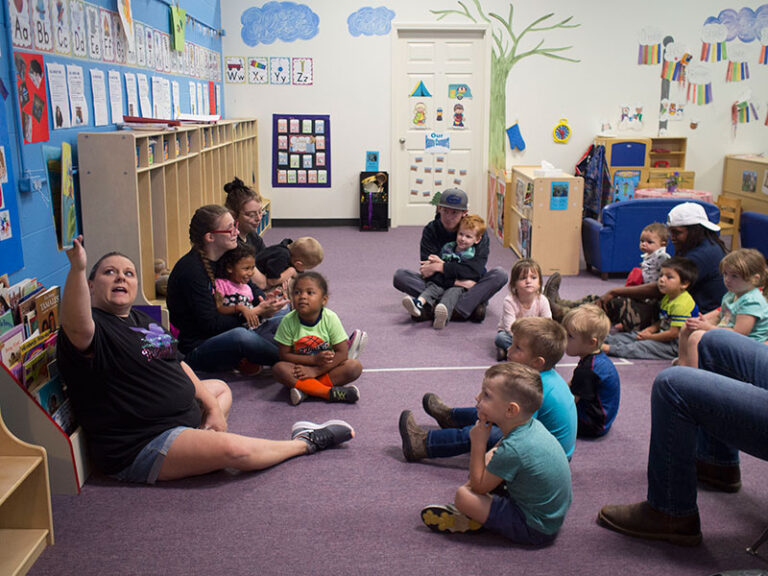

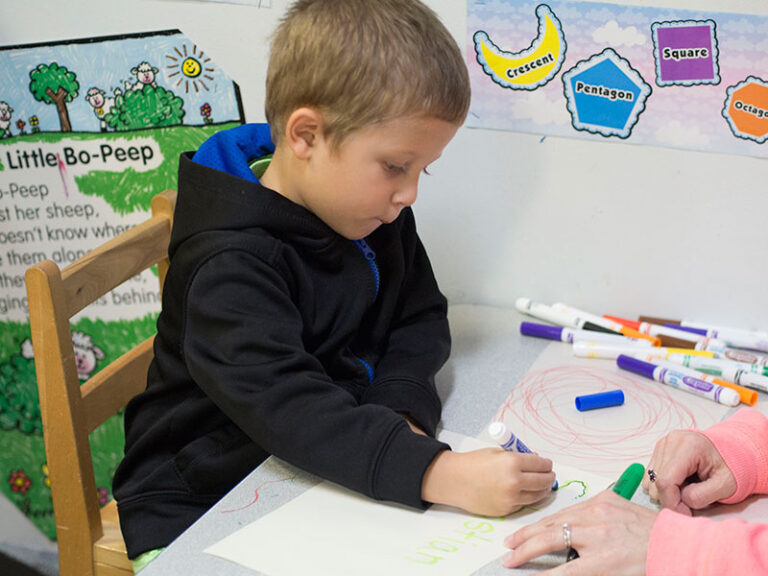
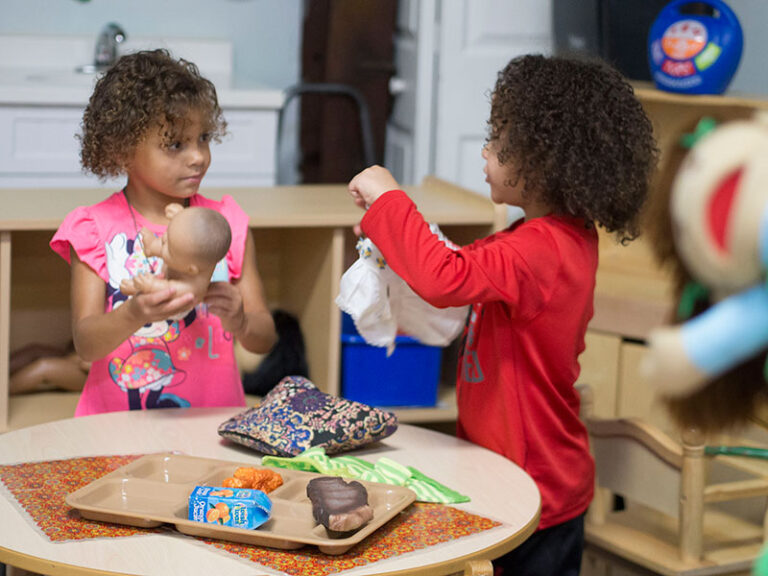

Head Start (HS) and Early Head Start (EHS)
The Head Start (HS) program provides crucial support to families with preschool-age children who live at or below the poverty level or considered “at risk”. The reality is that hundreds of children don’t have enough healthy food to eat, don’t have healthcare, don’t have safe childcare, and are not likely to succeed in an educational environment without intervention.
Head Start is a primarily federally funded program that provides comprehensive care for families with young children who are living at one hundred percent of the federal poverty level. The program includes meals, educational opportunities, and family services. SCHRA is the only agency in the surrounding 13 counties that offers Head Start and it is delivered entirely without cost to participating families. This happens thanks to a strong network of community collaboration. At least 10% of Head Start’s enrollment is available to children with disabilities.
The work of Head Start continues when children are not in the classroom. Teachers check in with families regularly to assess the progress being made. Family Partners and staff follow up with other agencies to coordinate services, complete assessments of children’s learning, contact health care providers as needed, provide translations, visit families’ homes, and look for additional resources to support the families and the classrooms.
The parents of Head Start children are encouraged to be involved with the program by serving on advisory committees and helping in the classroom as well as participating in activities at home that connect to classroom lesson plans. This gives parents a “head start” in understanding and successfully navigating the public school system, making them effective advocates for their kids long after leaving.
Contact Information
- Chrissy Tuten
- Head Start & Early Head Start Director
- ctuten@schra.us
- 931.433.7182 Ext 1182
- Jennifer Shaffer
- Head Start & Early Head Start Assistant Director
- jshaffer@schra.us
- 931.433.7182 Ext 1179
Early Head Start (EHS) promotes healthy prenatal care and positive birth outcomes for pregnant women, enhances the development of very young children and helps families become productive and successful. EHS is a child development program primarily for low-income families who meet the Federal poverty guidelines. At least 10% of Early Head Start’s enrollment is available to children with disabilities.
Family partnerships with EHS are vital to the success of this program. Working closely with EHS provides families with a comprehensive approach to building a strong family structure with healthy and successful children. It helps families learn more about the community in which they live and how to access the many resources that are available to parents.
EHS parents can actively take part in policymaking and other decisions for their child’s program. Parents have the opportunity to participate in their child’s education and are given opportunities to learn about and to truly understand their children’s educational and developmental needs.
Program Services Include:
- Quality early education both in and out of the home.
- Parenting education.
- Comprehensive medical, dental and mental health services, including services for women before, during and after pregnancy.
- Nutrition education.
- Family support services.
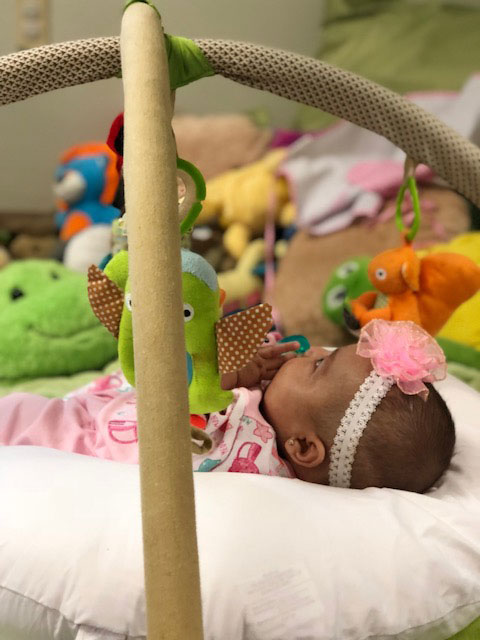
Who is Eligible?
- Income Eligible children ages birth to five and pregnant women
- Foster children
- Homeless families
- Families receiving TANF or SSI are considered categorically-eligible for Head Start
- Children with Disabilities
Other Examples of families considered “at risk” include:
- Single parents
- Grandparents
- Teen parents
- Children of incarcerated parents
- Health and mental health concerns
- Non-English speaking children
- Families in financial crisis or active military/veterans
Children with disabilities are fully-included in the Head Start/Early Head Start program. Services are provided for children with disabilities and their families in coordination with local early intervention and education agencies, community organizations, and school districts. Head Start/Early Head Start staff work closely with families to advocate in securing necessary services and resources for their children.
If you are over-income, you will be asked for further information.
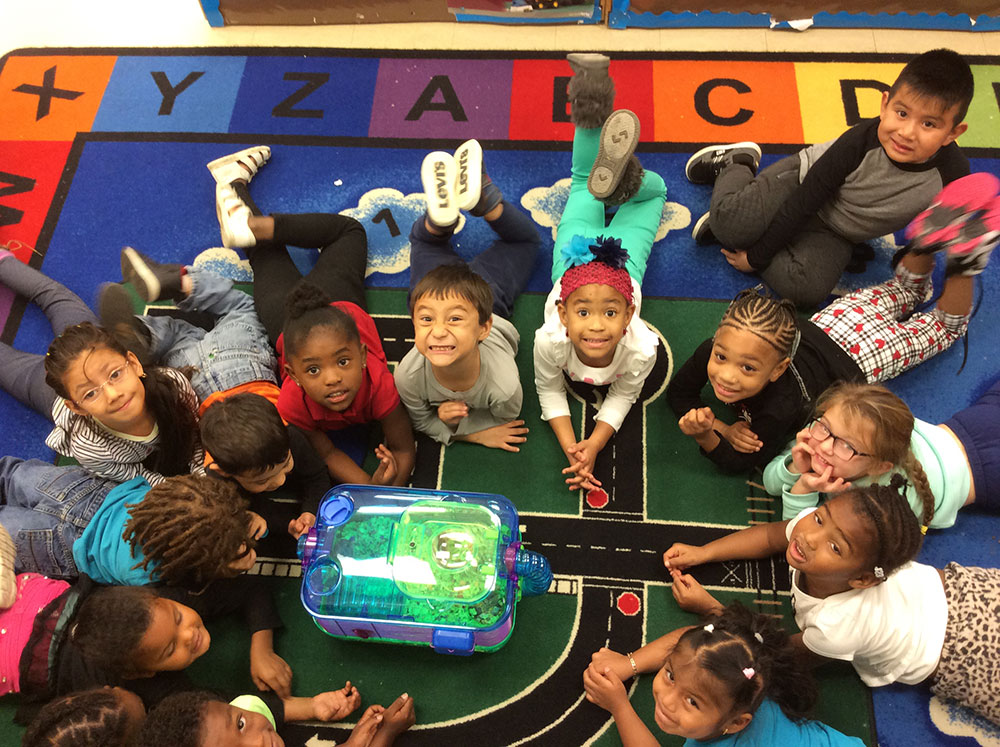
Education, Mental Wellness & Disability
- HS Teachers have a minimum of an AA degree
- EHS Teachers have a minimum of a CDA certification
- Research Based Curriculum
- Developmental Assessments
- Individualized Learning Objectives
- Low Child/Staff Ratios
- Structured Routines and Schedules
- School Readiness Skills
- Culturally Diverse
- Services for children with Disabilities
- Screenings and Ongoing Assessments
- Inclusive Classrooms
- Coordination of IEP (Individual Education Plans) and IFSP (Individual Family Service Plans) through the School System and Part C providers
- Mental Health Consultation and Intervention
- Parent Advocacy and Training
Health
- Medical and Dental Preventative Care and Case Management
- Hearing and Vision Screenings
- Staff certified in First Aid and CPR
- Clean and Safe Environments
- Indoor/Outdoor Physical Development
Nutrition
- Healthy Breakfast, Lunch and Snacks
- Menus approved by a Registered Dietician
- Growth Assessments
Family Support
- Parent Engagement Activities and Leadership Opportunities
- Supporting Families to meet their needs and achieve goals
- Family Goal Setting
- Community Resources and Services
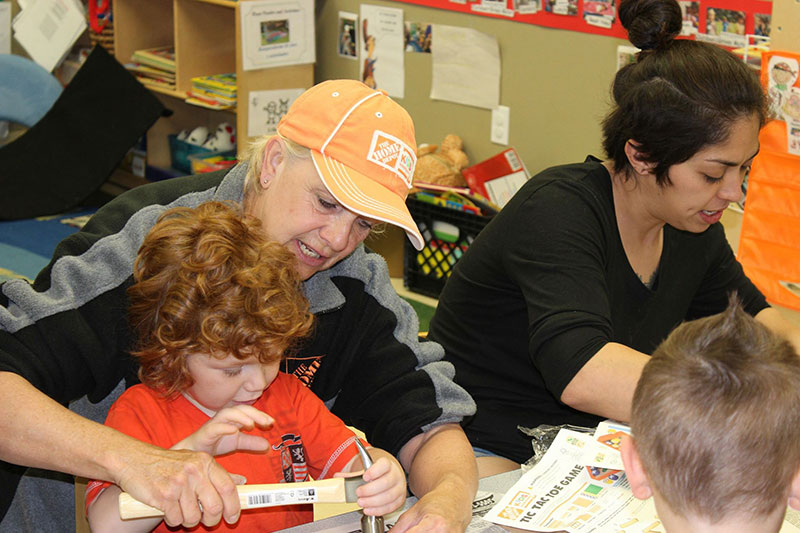

School Readiness
To prepare children for school, our teachers design developmentally appropriate learning environments, engaging activities and high quality interactions that encourage individual development for each child in three key areas: language development, which is fundamental to learning; literacy skills that lay the foundation for reading and writing, as well as familiarizing our children with books and other learning tools; and mathematics knowledge and skills, including understanding numbers, shapes, measurement, patterns, and other traditional mathematical problems. We know that math skills developed during the early years help children to connect ideas, develop logical and abstract thinking, and to question, analyze, and understand the world around them. To foster the appropriate development of skills and individualize for each child, the program utilizes a research based curriculum and conducts screenings and ongoing assessments to ensure children’s needs are met.
Our Curriculum: The Creative Curriculum is a comprehensive, research-based curriculum that features exploration and discovery as a way of learning, enabling children to develop confidence, creativity, and lifelong critical thinking skills. It is designed to help educators at all levels of experience plan and implement a developmentally appropriate, content-rich program for children with diverse backgrounds and skill levels.
The Partners for a Healthy Baby is a comprehensive research-based home visiting curriculum that explores the needs of expectant and parenting families focusing on both the parents and the child. This curriculum features issues related to Family Development, Family Health and Safety, Preparing and Caring for Baby/Toddler and Baby/Toddler’s Development. Home visitors can address the individual needs specific to each family.
Developmental Screening: The Brigance Screens provide quick, easy, and accurate screening of skills that are critical predictors of school success, including physical development, language, academic/cognitive, self-help, and social-emotional skills.
Ongoing Assessment: Teaching Strategies Gold is a research-based ongoing, observational assessment system that helps teachers and administrators focus on what matters most for children’s success. It is a direct companion to the Creative Curriculum and compliments the Partner’s for a Healthy Baby curriculum. Teachers use the data they collect to plan for each individual child’s learning journey.
Social/Emotional Development
The relationships between young children and the adults who care for them matter. In fact, these relationships make an important contribution to children’s school readiness. For young children to be able to learn, they need secure attachments to their family and other adults.
When children feel safe in their relationships, they are able to explore, learn, play, and create friendships with peers. These important skills, all under the umbrella of “social and emotional development,” will last them throughout their lifetime—and it all starts now!
Social Emotional Screening: Devereux Early Childhood Assessment is a nationally standardized, strength-based measure of child protective factors. It is completed by both parents and Teachers and provides reliable and valid data to promote young children’s social and emotional development. Parents and Teachers collaborate to ensure that screening and assessment data is incorporated into planning efforts for the home and school settings that strengthen children’s protective factors.
Physical
Perceptual, motor, and physical development are foundations for children’s learning in all domains. Development in these areas allows children to fully explore their environment and interact with people and objects. The domain includes four elements: perception; gross motor; fine motor; and health, safety, and nutrition.
Perception refers to how children use their senses to gather and understand information and respond to the world around them. Infants and toddlers use perception during interactions, for exploration, and to make sense of their experiences. Preschoolers rely on perceptual information to develop greater awareness of their bodies in space and to move effectively to perform tasks, such as kicking a ball to a friend.
Gross motor skills refer to moving the whole body and using larger muscles, such as those in the arms and legs. In infancy, gross motor skills include gaining control of the head, neck, and torso to achieve a sitting or standing position. They also include locomotor skills that emerge in the toddler years, such as walking, throwing, and stretching. Preschoolers gain even greater control over their bodies. This contributes to their increasing confidence and ability to engage in social play.
Fine motor skills refer to use of the small muscles found in individual body parts, especially those in the hands and feet. Children use their fine motor skills to grasp, hold, and manipulate small objects, such as cups, or to use tools, including scissors and paint brushes. As they gain hand-eye coordination, preschoolers learn to direct the movements of their fingers, hands, and wrists to perform more complex tasks, including drawing fine details or stringing small beads.
Health, Safety, and Nutrition is the fourth element of perceptual, motor, and physical development. Children’s physical well-being depends on several factors, including their knowledge and use of safe, healthy behaviors and routines. Children’s ability to keep themselves safe and healthy, such as communicating to adults when they are hungry or sick, is extremely important and contributes to learning and development in all areas. Part of our services includes facilitating preventative medical and dental care as well as treatment for identified concerns.
Oral Health Services
We take a very active role in dental preventive services and promoting oral health care by working with our children and families to emphasize the importance of establishing good oral health habits at an early age and maintaining them throughout life. Children and their parents are educated in effective dental hygiene practices, including age and development level of the child and their ability to clean their teeth properly, and recommended dental frequency.
Nutrition Services
A critical part of our role is focused on nutrition. We provide our children with two-thirds of their daily nutritional needs, which is important not only for their health and well-being but for their intellectual and social development. Head Start offers nutritious, ethnically diverse and child-friendly food through a state of the art food service program.
Parent Engagement
We recognize that the goals for children in our program could not be met without parental engagement. Our strong focus on parents sets us apart from other social service programs. We use a variety of strategies to engage parents including teaching them the importance of their role in the education and healthy development of their children. We provide opportunities for parents to contribute to Head Start/Early Head Start program management by encouraging them to participate in classroom committees and Policy Council. We believe that parents are the primary educator of their child and are urged to be an advocate for their children and their education.
Parent Education and Family Development
Our program aims to educate the entire family and to assist parents in their personal and family development. We utilize an individualized approach to parent education based on the identified interests, strengths and the needs of each family member. Family Partners work intensely with parents to create goals and to build their capacity as individuals and as families on their path to living self-sufficient lives. The program utilizes Active Parenting as our Parent Education Curriculum.
Community Resources
We have established strong partnerships in the community. Collaborations between community agencies plays a crucial role in the comprehensive services that we provide children and their families. Many families are simply unaware of the resources our community has to offer in adult education, social services, and counseling, to name just a few. By helping to provide access to these community resources, we give families a way to reach out and develop the foundations they need to reach their goals. These strong community partnerships ensure a seamless delivery of services to families and help avoid the obstacles that often play a large role in the cycle of poverty.
If you are interested in applying for Head Start/Early Head Start, please click on “Contact Us” and complete the form. A Head Start/Early Head Start team member will contact you to begin the application process.
Required Documentation
Proof of All Family Income
1040, W2, Pay Stubs, Unemployment Document, Statement from Employer, TANF or SSI Documents
Proof of Age
Birth Certificate, Shot Record, Any Documentation with Date of Birth
Proof of Guardianship
If Applicable: Foster Care Letter or Child Protective Services Documents
Divorce Decree / Custody Documents
If Applicable
Proof of Child Support
If Applicable
